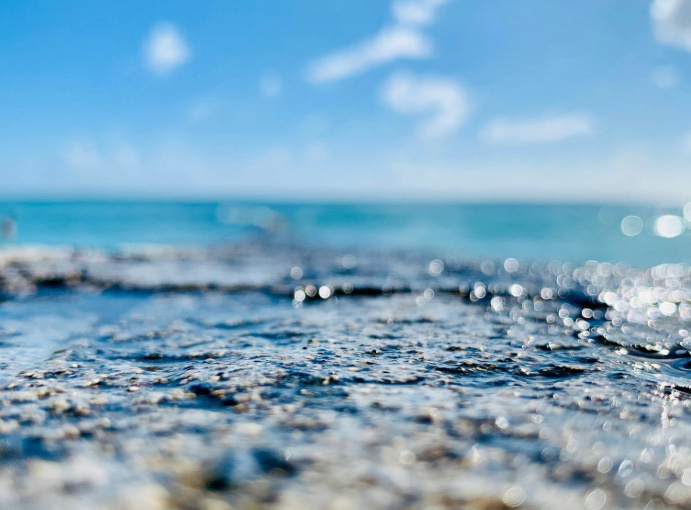The Truth Behind the Tourist Number Decline in Hawaii and How This Impacts Local Businesses

Hawaii’s tourism industry has experienced an unforeseen downturn, really worrying local entrepreneurs and experts. With decreased numbers of visitors, the question is: what’s behind the drop and how are modern options changing the way individuals vacation?
Reasons for the Decline in Tourists in Hawaii
Hawaii is always the ultimate dream destination with its stunning, picturesque beaches, green scenery and cultural diversity but nonetheless, recent surveys confirm an appreciable decline in tourists, especially from the United States mainland and Japan. There are various reasons for this change.
To start with, inflation and the cost of living have really affected discretionary spending. Numerous visitors are reconsidering the really pricey vacations in favor of something closer to home or cheaper. Flights to the islands continue to be expensive, in particular when compared with destinations in Mexico or domestic coastal towns along the coast of the United States.
Second, environmental issues are finally having an impact on travel patterns. With Hawaii facing over-tourism in areas of high demand and strain on its resources, some environmentally aware visitors are heading instead to lesser-visited areas. The heightened threat of natural disasters, including wildfires and storms, also makes travelers take pause.
Lastly, government policies and infrastructure are involved. Tight supply of rental cars, excessive hotel taxes and short-term rental controls have also prevented Hawaii from being accessible or within reach for prospective visitors.
Online Casinos and Changing Entertainment Patterns
Interestingly enough, the development of digital entertainment could be having an impact on holiday patterns as well and more individuals are resorting to online activities in order to fulfill their leisure requirements, particularly for gaming and entertainment. Of these tendencies, online casinos have generated major growth in popularity.
Travelers who used to derive thrills from activities in traditional vacations are discovering them online. From their homes, or even hotel rooms, players can enjoy adventures as adventurous as physical casinos. For instance, no deposit bonus casinos provide customers with an opportunity to start playing for real for free, with the possibility of winning money without necessarily spending anything initially. This no-risk method is particularly attractive for occasional players and tourists in need of immediate fun.
Despite an overall decline in tourism numbers to Hawaii, online casinos might actually have a positive effect. While before, casino lovers would likely have flown to Vegas or European casino hotspots, now tourists can gamble at online casinos from anywhere. This means they can get the best of both worlds by coming to Hawaii to enjoy the beaches and also enjoy online casino gaming from there. On the other hand, tourists may be less likely to travel overall if the trend of seeking virtual over touristic experiences continues. Online casinos provide loyalty schemes, communal features and real-time action with live dealers, contributing to the rich experiences once exclusive only to luxury resorts.
Economic Ripple Effects
The impact of declining tourism is being directly realized on the ground and small family-owned businesses such as eateries and convenience stores, which rely predominantly on walk-ins from tourists, are being hit with decreased revenues. Tour operators that provide activities such as snorkeling trips, hiking tours and cultural performances are also unfortunate to be suffering from decreased bookings.
Hotels and resorts are the most conspicuous of the impacted sectors, but the trickle-down effect is much farther-reaching. Artisan craftsmen who sell their wares, local farmers who provide produce for restaurants and taxi and limousine drivers are impacted. The businesses have had to lay off employees or trim hours of operation, or in some cases, have shut down.
Its tax revenues are also linked with tourism, so public services as well as infrastructure maintenance may suffer in the future. The economy of Hawaii is integrally linked with its tourist industry and any extended downturn can potentially impact beyond just the businesses facing the visitors.
Concerns about the environment
Today’s visitors are becoming more considerate of their environmental impact and their budget. Hawaii, as lovely as ever, is being challenged as to its sustainability and affordability. Some visitors feel overwhelmed with crowds in key destinations or priced out of lodging, dining and activities.
As an answer, increasing numbers of them are looking for “slow” travel in other destinations, to destinations in which they can experience nature or local culture for a cheaper rate. Others are forgoing travel altogether, opting instead for home upgrades or saving for their future financial well-being.
Climate change weighs heavily on potential tourists’ concerns as well and with Hawaii’s sensitive ecosystems strained, travelers might decide to visit less threatened areas. Responsible travel initiatives and ecotourism alternatives assist, though maintaining preservation with profitability is an ongoing challenge.
What’s Next for Hawaii?
Even with the challenges of the present, Hawaii is no stranger to resilience. Stakeholders are finding innovative methods of luring visitors with an emphasis on sustainability and these involve diversifying marketing for lesser-known islands and activities, promoting cultural tourism, as well as encouraging off-peak travel in order not to overburden these areas.
There is also an emphasis on quality over quantity, resulting in an attempt to promote longer stays, in-depth connections with host communities, as well as responsible travel. Digital innovations like reservation apps, green-tourism guides, as well as interactive virtual tours can accompany real-world excursions and really augment the experience.
